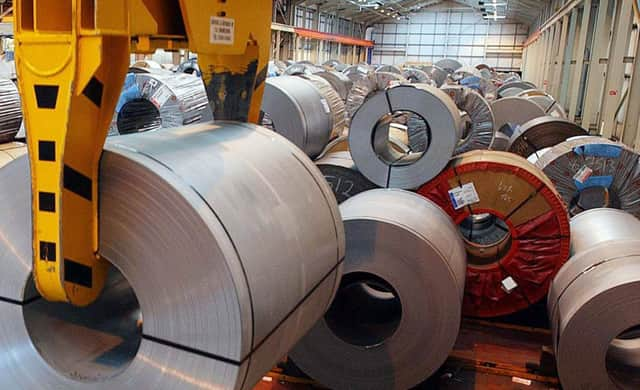Manufacturing fall ahead of expected slowdown


Figures from the Office for National Statistics (ONS) showed construction output fell 0.4% in January in line with expectations, down from 1.8% growth in December, as repair and maintenance dropped 1.3% over the period.
Industrial production output came in lower than expectations, but still fell 0.4% in January compared to 0.9% growth the month before.
Advertisement
Hide AdAdvertisement
Hide AdThe drop was driven by manufacturing, which fell 0.9% over the period as the “highly erratic” pharmaceuticals industry slipped by 13.5%.
However, Britain’s deficit in goods and services, the gap between exports and imports, was £2 billion in January, level with the month before.
The ONS said exports increased slightly more than imports over the period at £400m and £300m respectively.
The UK economy defied economic forecasts by recording robust growth in 2016 despite fears of a Brexit-induced slowdown.
Advertisement
Hide AdAdvertisement
Hide AdHowever, economists expect growth to slow in 2017 as inflation triggered by sterling’s slump since the Brexit vote begins to squeeze household spending.
Despite month-on-month falls in manufacturing and construction output, the three-month period to January revealed a brighter picture.
Total production output grew by 1.9% over the period after manufacturing notched up its strongest expansion since May 2010 at 2.1%.
Construction output also expanded by 1.8% for the three months to January, with all new work growing by 2.1%.
Advertisement
Hide AdAdvertisement
Hide AdMeanwhile, Britain’s trade gap shrank by £4.7bn to £6.4bn over the three-month period thanks to rising exports of oil, machinery, transport equipment and non-monetary gold.
Kate Davies, ONS senior statistician, said: “Taking the last three months together, construction and manufacturing both grew strongly, with considerable narrowing in Britain’s trade deficit.
“However, both manufacturing and construction were broadly flat on the month with the trade balance little changed.”